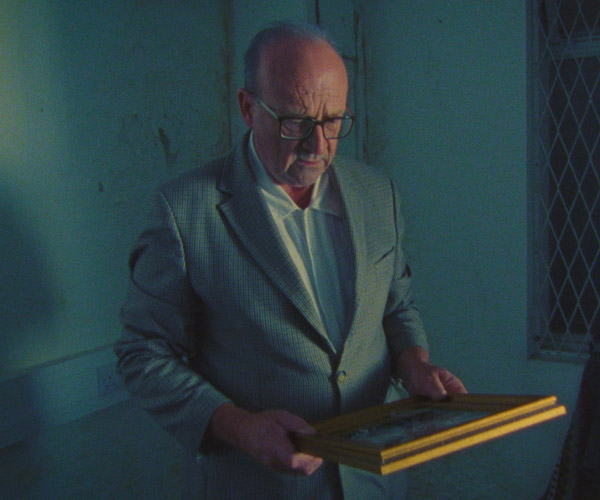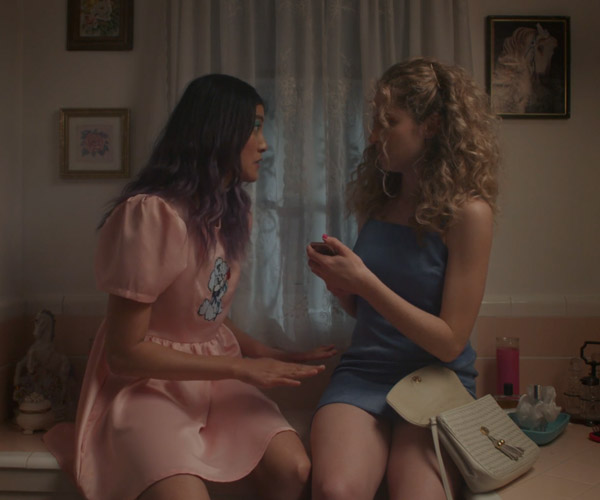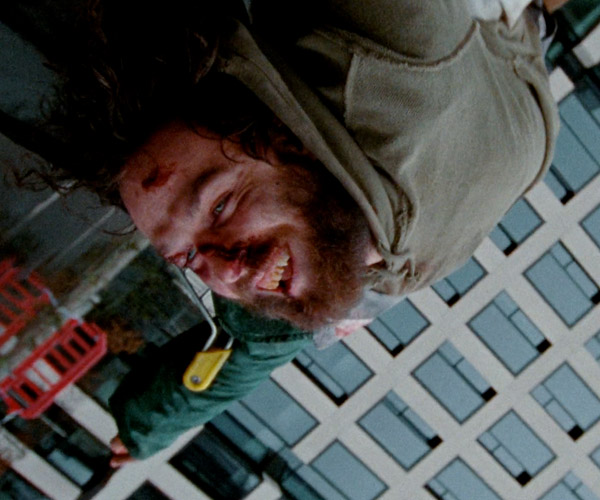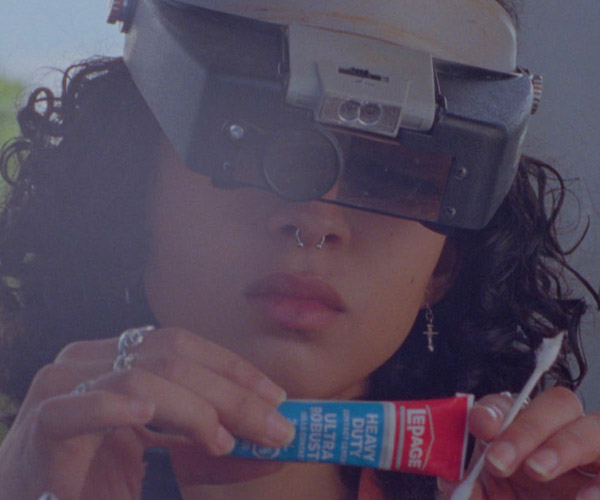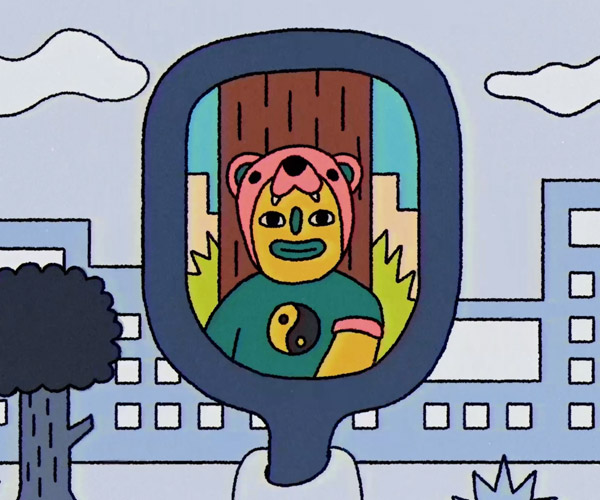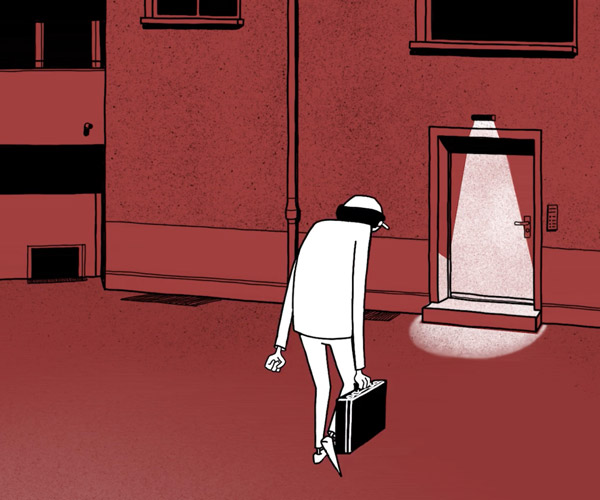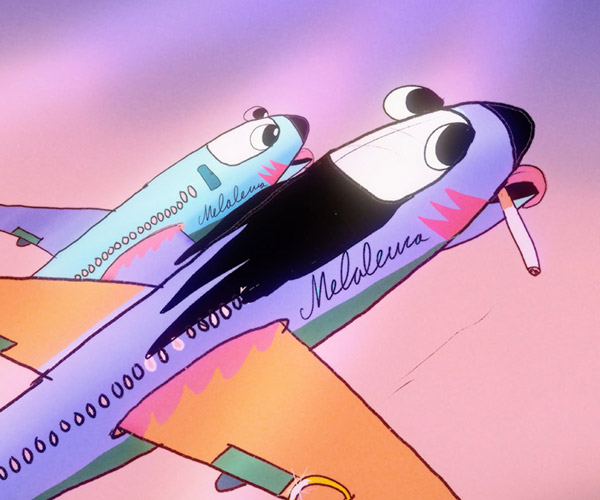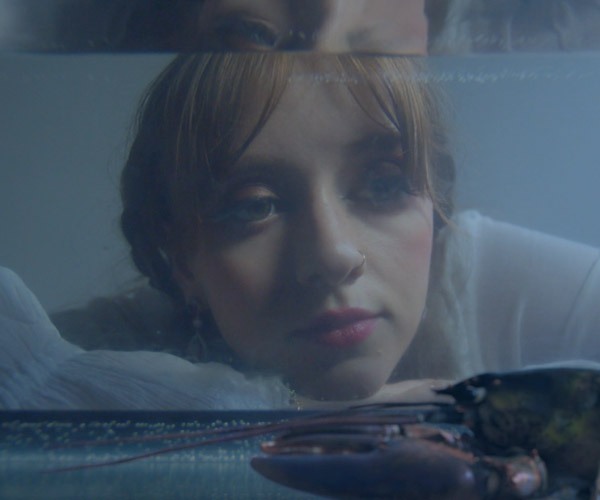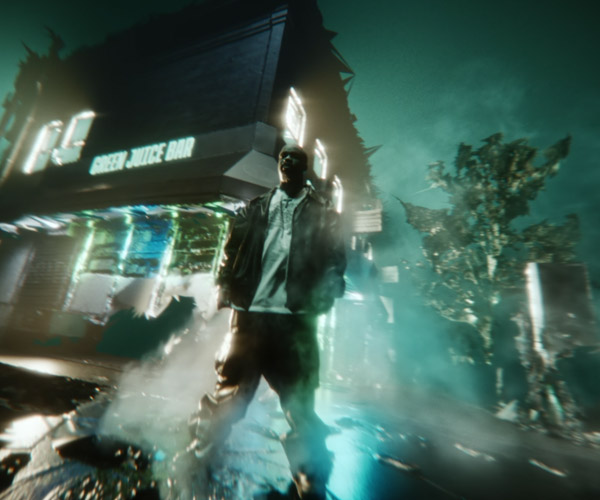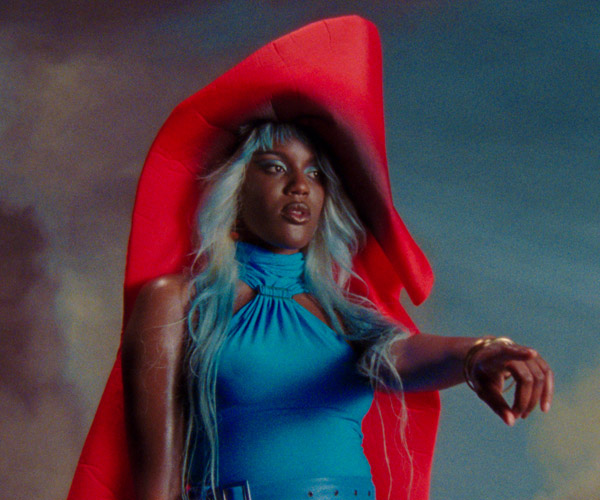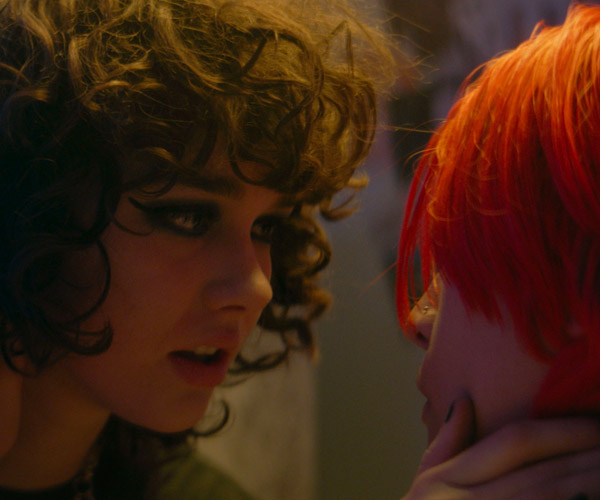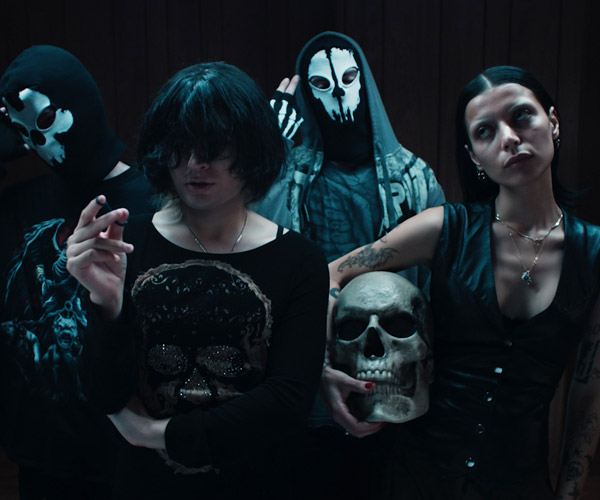Earlier this year we announced the winners for the 2018 Booooooom TV Awards. Brooklyn-based director Graham Mason’s “Phone Story” was one of our top picks for Best Short Film. Told entirely through monologue-style reenactments of 218 text messages and 4 phone calls, “Phone Story” followed a desperate man, attempting to recover from a drunken encounter with his ex.
Clever writing and pitch-perfect performances made this one of the most memorable and original shorts we’d seen in a long time. Mason has just released the first episode of a new video series, “Astronauts,” and we caught up with him to find out a little bit more about it.
Watch above and check out our full interview with Graham Mason below!
Starring Colin Burgess & Tynan DeLong
Directed by Graham Mason
Written by Colin Burgess, Tynan DeLong & Graham Mason
Director of Photography: Ian McAlpin
Original Music: Bennett Young
Production Sound: Ryan McGlade
Edit: Graham Mason
Production Assistant: Jeremy Falson
Jeff Hamada: Let’s start with the question I usually like to start with, what were you like as a kid?
Graham Mason: I was a pretty quiet and observant kid. I was always drawing comics and making little narrative videos with a VHS camera that my dad would bring home from his job. In middle school, I would start writing extremely ambitious novels and then move on after the first chapter. In high school I taught myself Photoshop and iMovie and took video production classes.
I also remember in high school I would see my best friends every weekend and we would hang out in this very kid-like way, where we would kind of perform movies for each other; it was like a weekly creative workshop.
JH: How are you different now?
GM: I’m more confident and I’m better at getting out of my own head. I’m less hard on myself. I am also considerably taller and have a lot less to work with in the hair department.
JH: In what ways are you the same?
GM: I’m still pretty low-key and my favorite thing is still hanging out with friends and making things.
JH: If we made a timeline of your life where each milestone was a film that made an impact on you, what films would be on there, and at what ages?
GM: The only way for me to do this is to cheat and do multiple movies and some key filmmakers and TV shows.
Childhood: Jurassic Park, Wayne’s World, Adventures of Pete and Pete (TV show), Time Bandits
Age 15: Rushmore
High School: Pulp Fiction, Being John Malkovich, Beastie Boys Criterion DVD, Fishing with John (TV show)
College: Loves of a Blonde, The Apartment, Dazed and Confused, Mulholland Drive, After Hours, BBC The Office, Jan Svankmajer (I wrote a thesis on Svankmaker)
Mid-Late 20’s: The Taste of Tea, Happy Go Lucky, The Last Detail, Inland Empire, Garth Marenghi’s Darkplace (TV show), Aki Kaurismaki
Early-Mid 30’s: Tampopo, Toni Erdmann
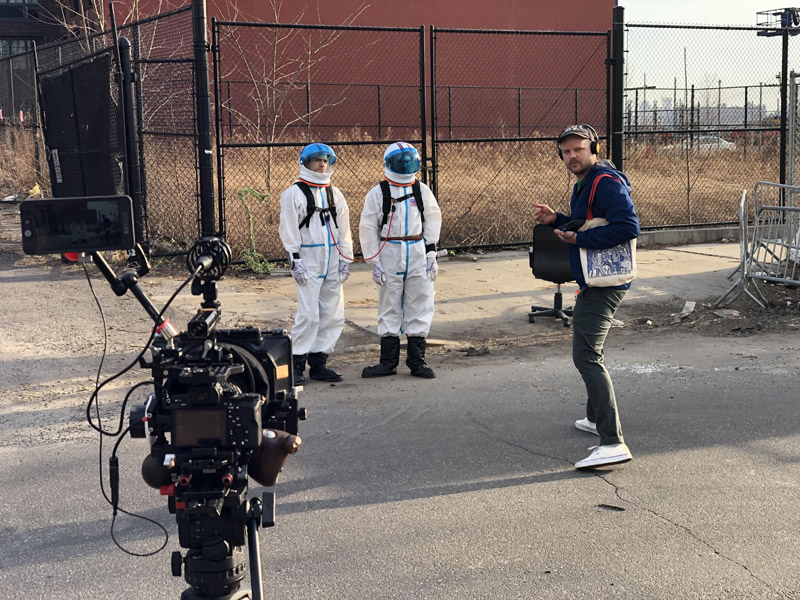
JH: How would you describe your filmmaking style?
GM: It’s very simple and straightforward, and I don’t shoot a lot of coverage (Phone Story is this taken to the extreme).
The tone of my videos is often a little tense or unsettling, where you don’t quite know what’s going to happen. I recently realized that several of my projects have this growing sensation that the story is being driven by a crazy person — Monkey and Man, The Photos of Ana, Walking Your Dog in the Park, and Words with Ike all have that to varying degrees.
Phone Story is more grounded, but I think there’s also a kind of slow-burn strangeness to it that bumps up against the emotional stuff in a satisfying way.
JH: Tell me about this new web series, The Astronauts. What was the initial seed of the idea?
GM: I was a big fan of Colin and Tynan’s videos and wanted to come up with a collaboration we could do together.
We started out with a more ambitious sci-fi story that had more plot stuff going on, and eventually landed on this very stripped-down premise of two characters stuck floating in space, which I knew I could pull off with no-budget.
Paring it down to this super-simple setup turned the whole thing into a kind of absurdist play that felt cool, and it put the focus on the jokes and performances instead of the production values.
JH: Is any of it improvised or is the conversation pretty much exactly how it was written?
GM: We had a script that covered all the story beats and had some specific expositional dialog we needed to get, but the actors are both great improvisers and they re-did like 90% of the lines and made it so much funnier.
JH: Without giving too much away, what can you say about where the series goes?
GM: It’s a story about how these two characters pass 637 days stuck in space, and I think thematically it becomes about friendship and creativity, while also retaining its weird tone throughout. The series has a big ending that I won’t spoil.
JH: Are you constantly writing down things you overhear?
GM: I keep a notebook and make a lot of notes, but I’m not necessarily using it in that way. I try to listen to the world and sometimes a weird snippet I overhear will stick out, but most of my writing is more free-associative, like I’m mentally improvising a conversation with the characters and transcribing that.
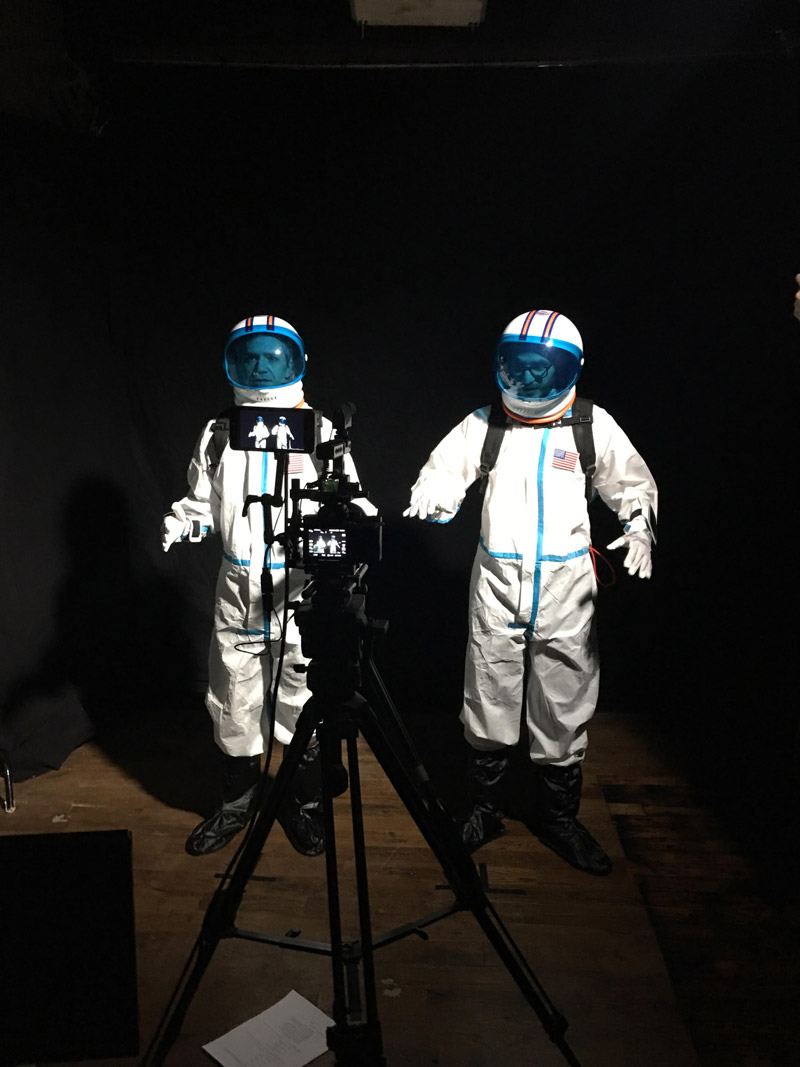
JH: Who are some other emerging filmmakers that people should be on the lookout for?
Doron Max Hagay, Tynan Delong, Lorelei Ramirez, and Albert Birney’s Tux and Fanny Instagram.
JH: Do you feel like what you’re doing now is what you were born to do?
GM: I hope so. It’s basically the only thing I’ve done so far, so if I were to give up now I would be pretty useless.
JH: What’s one piece of advice that has stuck with you? And who gave it to you?
GM: My partner Nicole passed along this really helpful advice that I think about all the time: When you’re feeling stressed-out or frustrated, think of yourself as a pendulum that’s swinging back and forth. And try to think of a discouraging time period in your life as something that will build up momentum to take you back into a positive place. And as life goes on, you try to keep in mind that you’re never going to stop swinging.
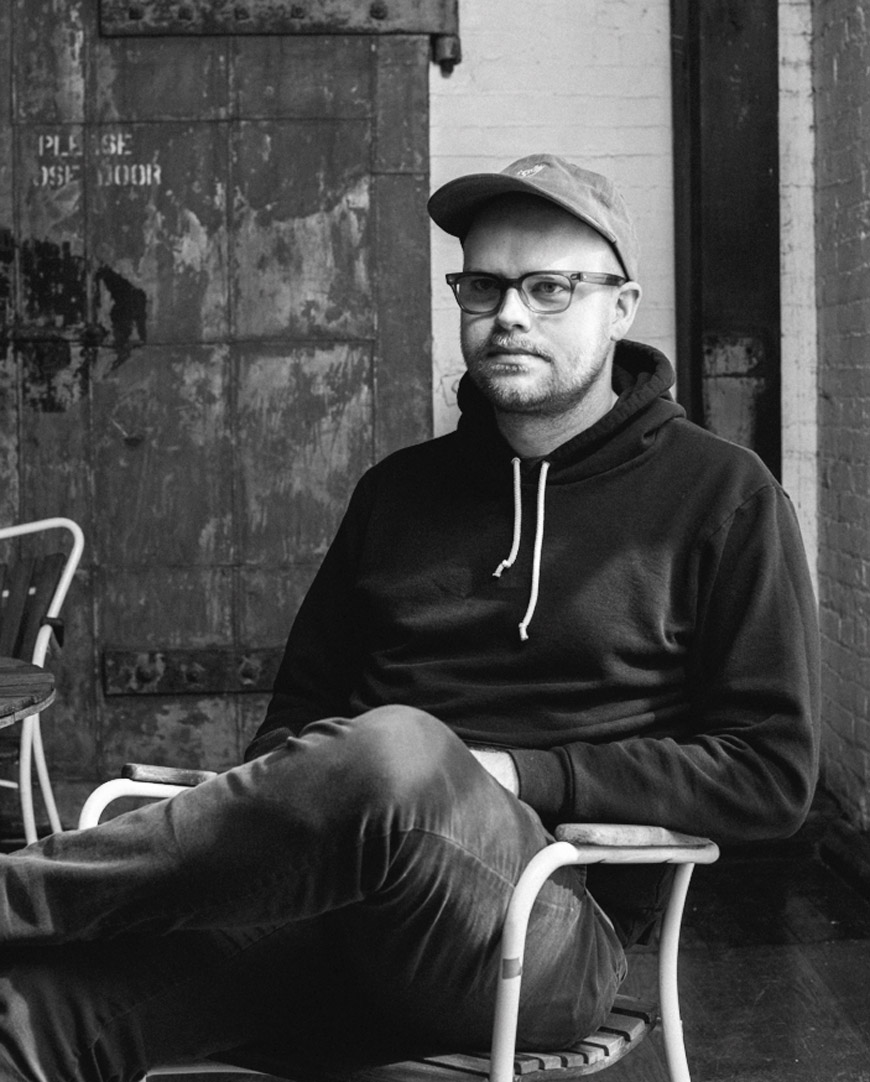



 Share
Share
 Tweet
Tweet
 Email
Email
